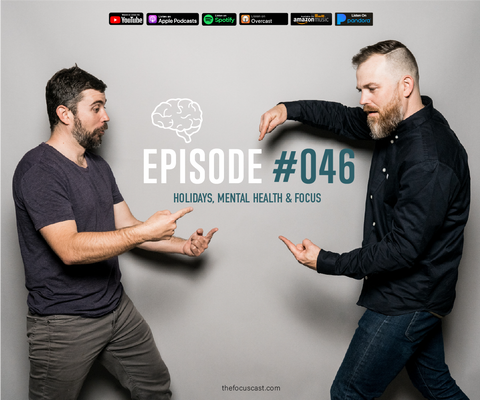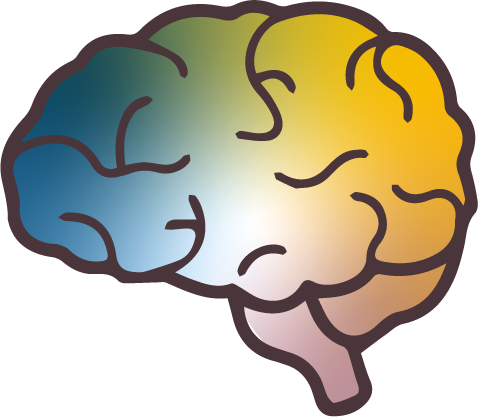
#46 Holidays, Mental Health & Focus
Remember when we’d show up our grandparents house and all the food was cooked for the entire week, and we didn’t have to do shit besides eat and enjoy Christmas. Things change when you get older and you’re responsible for hosting 15 people. Or if you’re worried about political drama and outbursts during dinner. It’s no secret the Holidays can mess with your mental health, on this episode we talk about the mental juggling of the holidays, lets dig in.
LISTEN
PROBLEM
- So today we’re starting a little holiday series and, on this episode, we’re talking about Holidays and mental health
- So the Holidays can be stressful depending on your family/life situation and we’ve already talked about the effects of stress on the body in episode #21. But here’s a recap
- Short term stress: Stress is the body's reaction to harmful situations -- whether they’re real or perceived. When you feel threatened, a chemical reaction occurs in your body that allows you to act in a way to prevent injury. This reaction is known as "fight-or-flight” or the stress response. During the stress response, your heart rate increases, breathing quickens, muscles tighten, and blood pressure rises (WebMD)
- Symptoms(Short Term): Feeling overwhelmed, Low energy, Headaches, Upset stomach, including diarrhea, constipation, and nausea, Aches, pains, and tense muscles, Chest pain and rapid heartbeat, Insomnia, Frequent colds and infections, Loss of sexual desire and/or ability, Nervousness and shaking, ringing in the ears, and cold or sweaty hands and feet, Dry mouth and a hard time swallowing, Clenched jaw and grinding teeth, Constant worrying, Racing thoughts, Forgetfulness and disorganization, Inability to focus, Poor judgment WebMD
- Symptoms (Long Term): depression, anxiety, and personality disorders, Cardiovascular disease, including heart disease, high blood pressure, abnormal heart rhythms, heart attacks, and strokes, Obesity and other eating disorders, Menstrual problems, Sexual dysfunction, such as impotence and premature ejaculation in men and loss of sexual desire in men and women, Skin and hair problems, such as acne, psoriasis, and eczema, and permanent hair loss (WebMD)
- Misconception: The idea that suicides occur more frequently during the holiday season is a long perpetuated myth. CDC’s National Center for Health Statistics reports that the suicide rate is, in fact, the lowest in December.2 The rate peaks in the spring and the fall. (CDC)
- Holidays and grief: Grief in and of itself is bad enough, but it can be magnified when the holidays roll around. That’s mainly because the holiday season is filled with reminders of the one you lost, as you’re surrounded by others who have their loved ones with them and are celebrating a season of joy and togetherness
- The pain you’re feeling is very much at odds with the celebratory spirit that’s all around you, leaving you nothing but quiet moments where you’re faced with the raw power of loss (Ouch) PathwaysHealth.org
SOLUTION
- Decide which traditions you would like to keep and which ones you would like to change, suggests What’s Your Grief.
- Create a new tradition in memory of the person you lost
- Include your loved one’s favorite dish at Christmas dinner.
- Minimize gift-giving, or skip it altogether. With so much on your mind, going to the mall or spending hours shopping online may seem like an unnecessary stress (It's mostly consumerism bullshit anyway)
- Reach out. If you feel lonely or isolated, seek out community, religious or other social events or communities
- Exercise, meditate, reduce social. The big 3 to reduce stress.

Comments (0)
There are no comments for this article. Be the first one to leave a message!